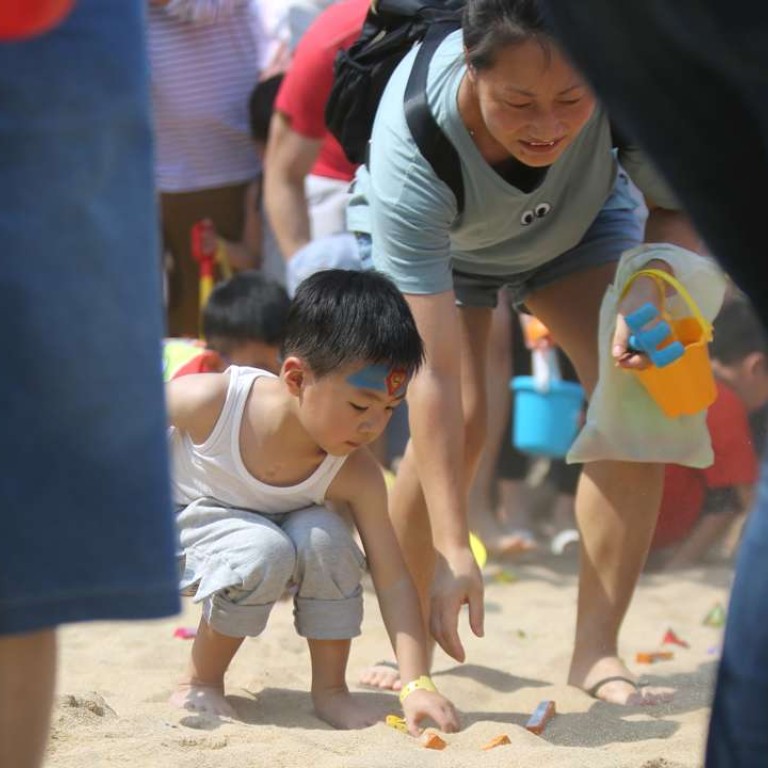
Hong Kong Easter egg hunt raises more than ever for city’s asylum seekers
Ma Wan event held over two days after high demand
An annual Easter egg hunt saw its biggest turnout to date over Friday and Saturday, raising a record amount of money for a charity helping asylum seekers in Hong Kong.
The Ma Wan Easter Egg Hunt, held on the beach of the small island between Tsing Yi and Lantau Island, raised more than HK$310,000 for The Vine Community Services, surpassing the organisers’ target. Nearly 3,000 people attended, to search for the hidden chocolate eggs, play games and watch a dance show.
The money raised was six times more than last year, suggesting a growing concern among Hongkongers for the plight of the city’s asylum seekers.
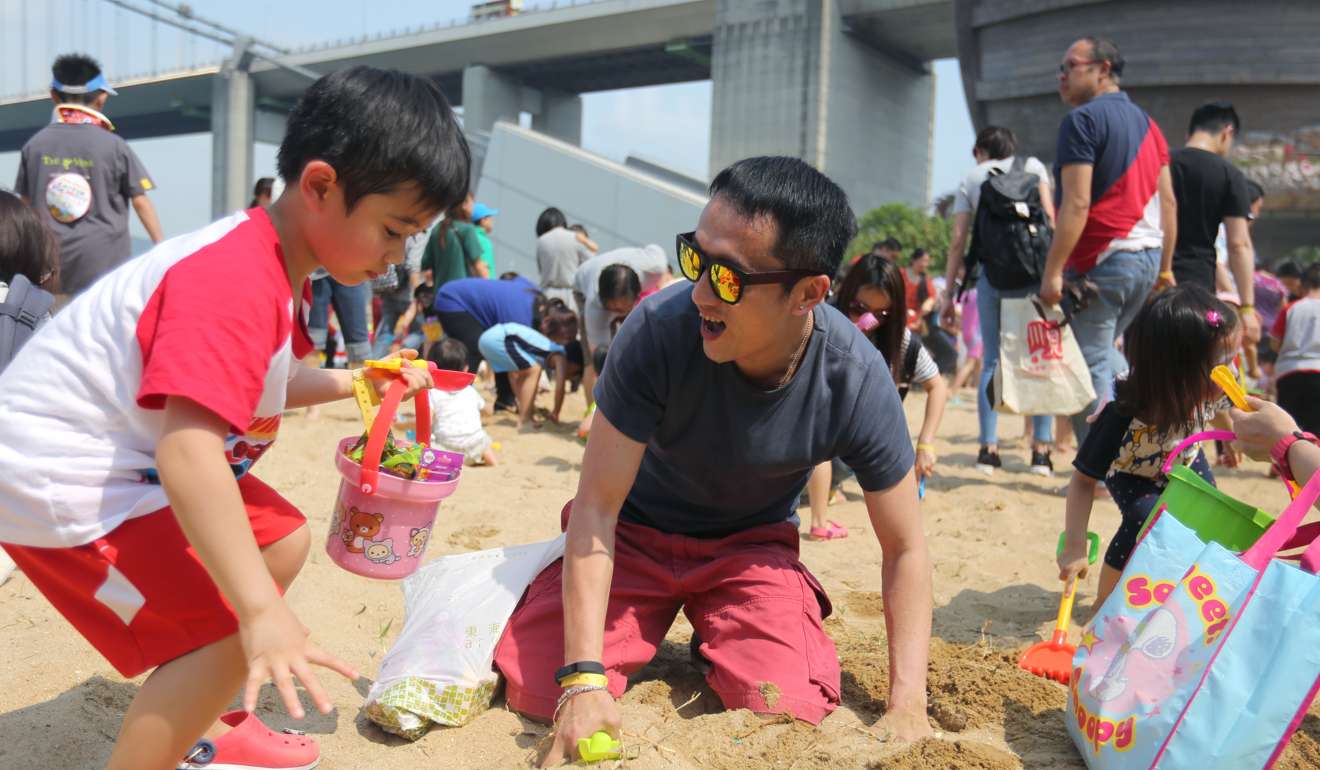
“Hong Kong people are charitable and giving, so if good awareness is raised and a good cause is associated with a fun event, they are willing and generous,” Ken Lung, one of the principal organisers, said.
Hong Kong law bars asylum seekers from working in the city. They have to rely on government assistance for daily living expenses while their claim for protection is assessed.
Assistance payments, which come monthly, include a housing allowance of HK$1,500 per adult and HK$750 per child, HK$1,200 for food in supermarket coupons, transport expenses averaging HK$200 per person and HK$300 for utilities.
With Hong Kong’s notoriously high rents and rising cost of living, that is not enough for most to get by, and they must rely on charities to help make up the shortfall.
Asylum seeker “Max” – a pseudonym to protect his and his family’s identities – has been in Hong Kong with his wife and children for two years after escaping from a North African country. He said his family would not have been able to survive in the city without the help of NGOs and charities.
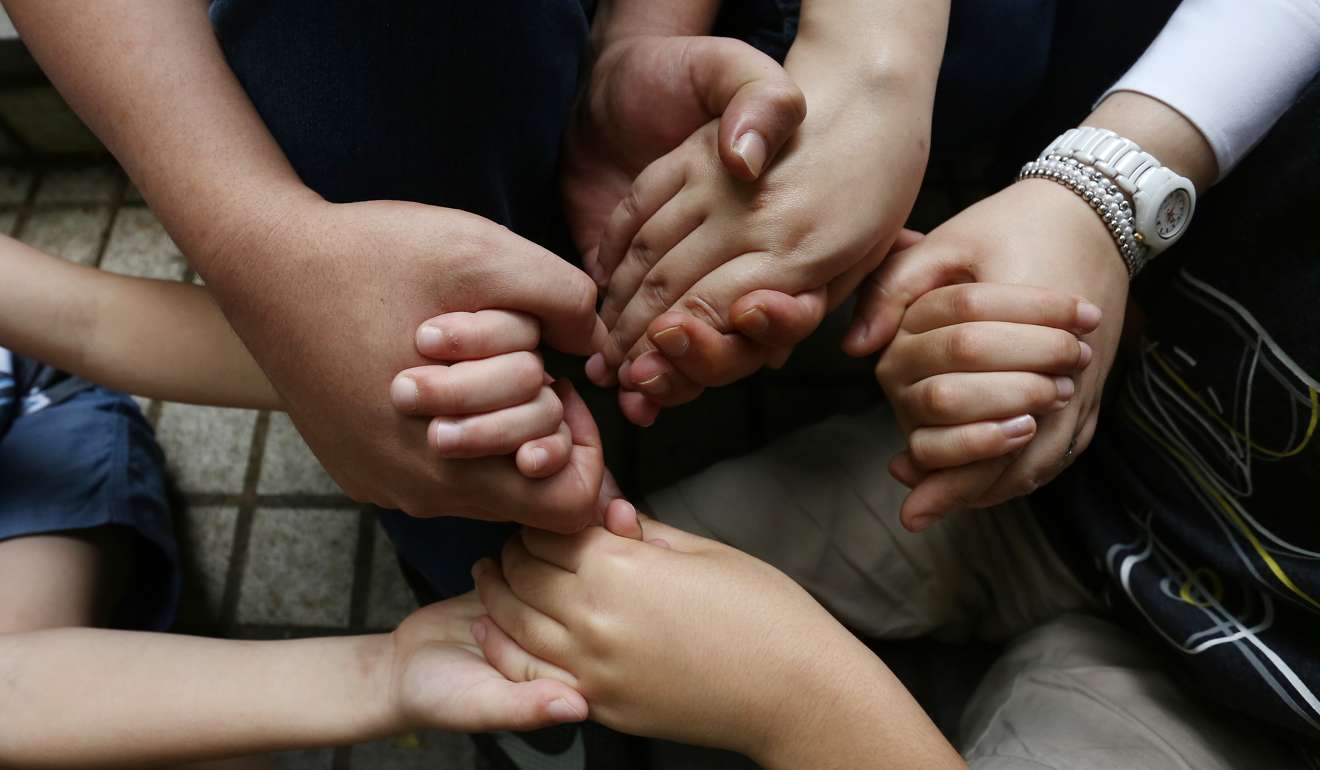
“The Hong Kong government is not welcoming to asylum seekers … they try to limit assistance as much as they can,” Max said. “The government assistance is not enough at all.”
“[The charities] help with medical issues, rent, clothes, food, and education, especially when we were newcomers,” he said.
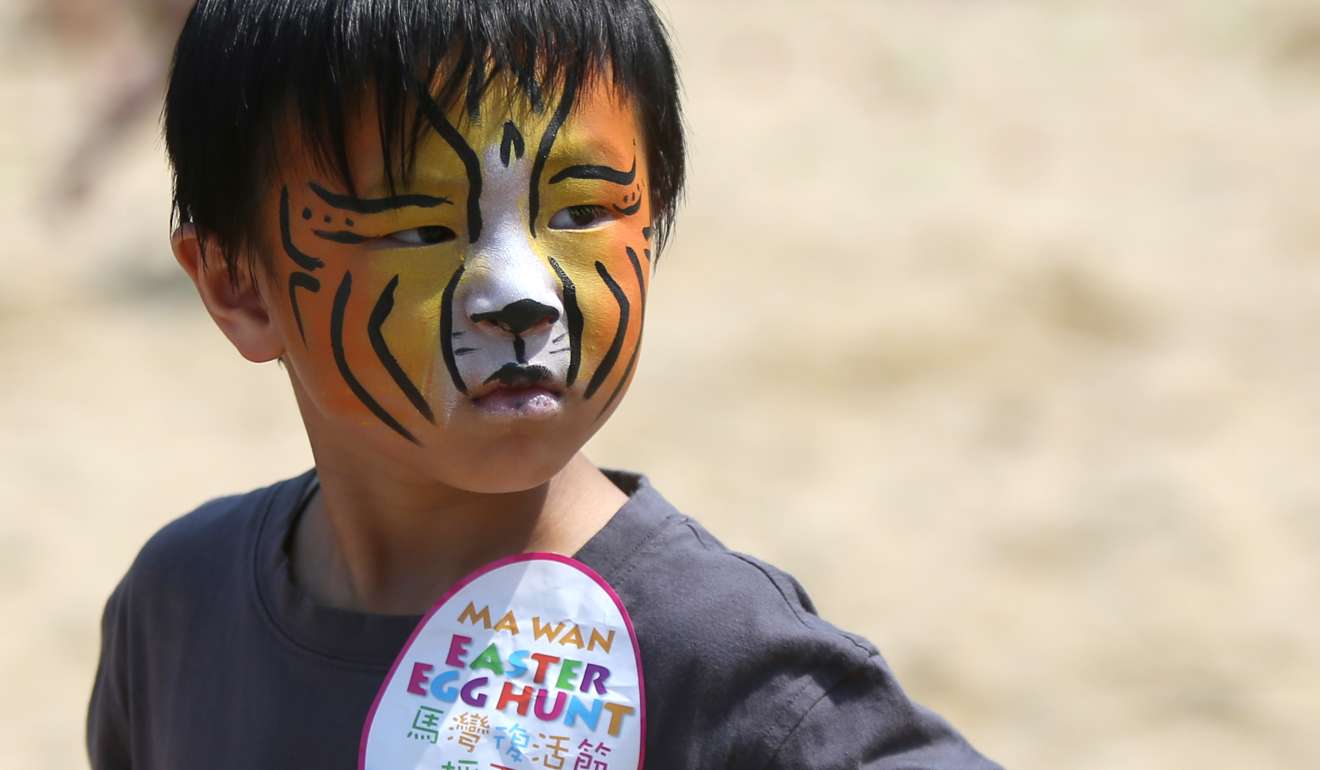
“Being an asylum seeker is not what we dreamed about, but at least we’re not in danger.”
Processing applications for refugees can take years. Some applicants turn to working illegally or getting involved in crime, such as dealing drugs, to make extra money, risking long prison sentences if they are caught.
This year, the Easter egg hunt was spread over two days due to the surge in participants. In previous years it lasted one day.
The hunt had a humble beginning in 2011, involving only 30 people from Ma Wan, but is now open to the rest of Hong Kong.
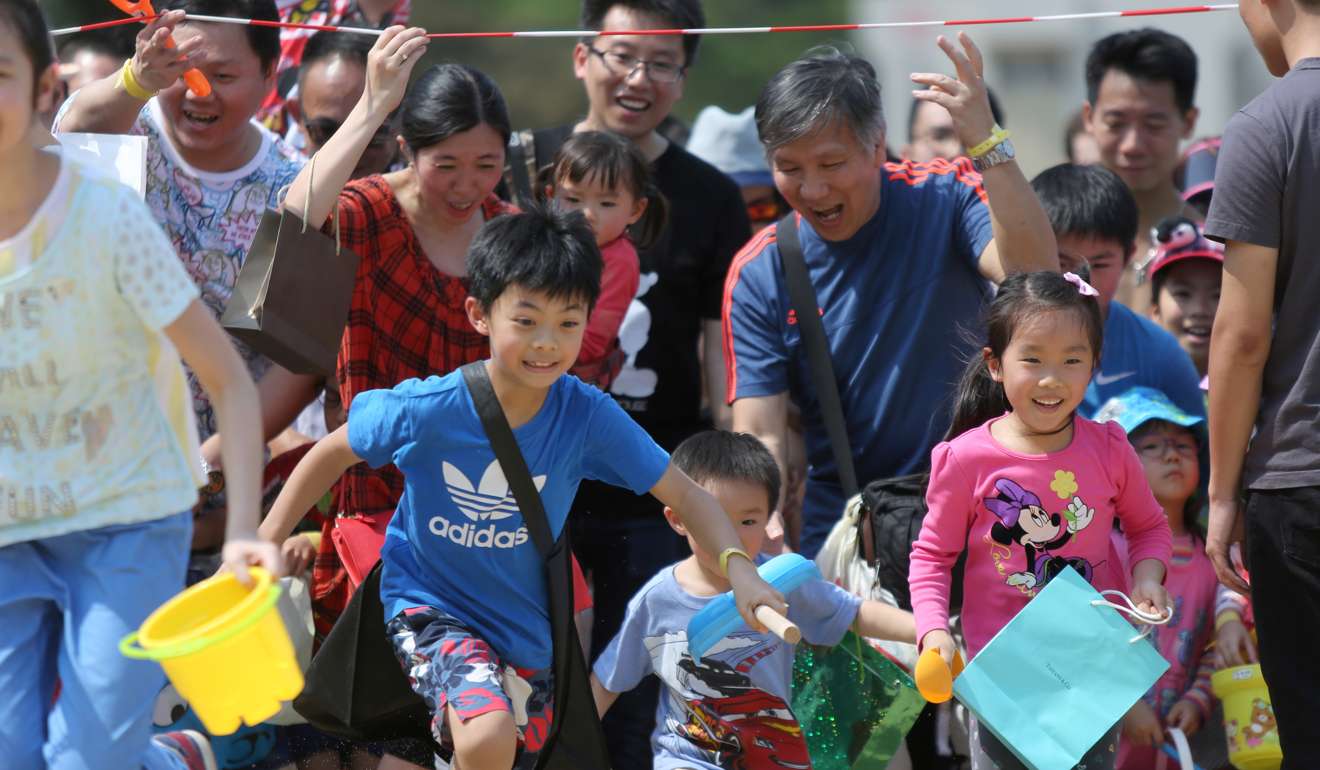
“Every year it began to multiply, along with the activities that we do at the event. It’s now become a little carnival,” Lung said.
Last year, for the first time, organisers connected with Vine and decided to raise funds for asylum seekers. All net proceeds from the HK$100 entry fees each person paid went to the charity, a Christian group that helps asylum seekers in Hong Kong.

